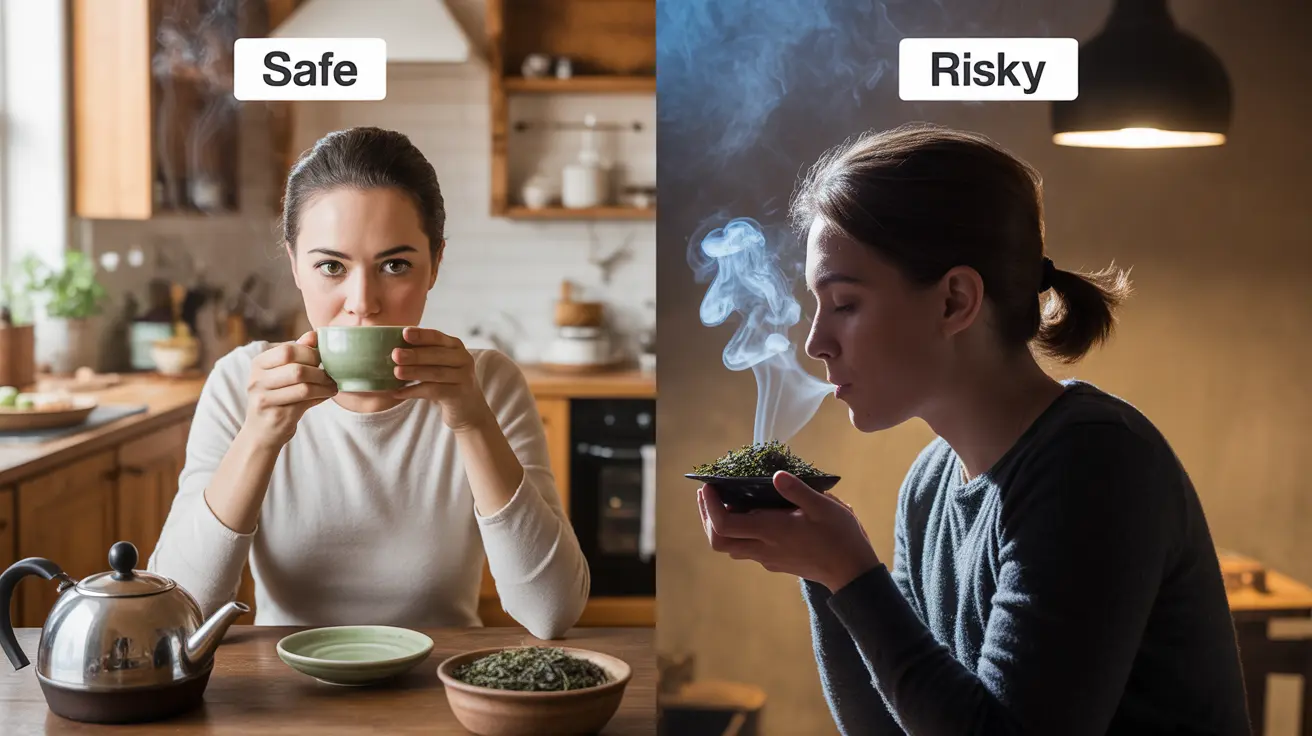As alternative smoking practices gain attention, some people have begun experimenting with smoking green tea leaves. While green tea is renowned for its health benefits when consumed as a beverage, smoking any substance—including green tea—raises important safety concerns that deserve careful examination.
This comprehensive guide explores the potential risks, effects, and misconceptions about smoking green tea, helping you understand why traditional consumption methods remain the safest way to enjoy this ancient beverage.
Understanding the Practice of Smoking Green Tea
Smoking green tea involves burning dried tea leaves and inhaling the resulting smoke. Some individuals pursue this practice as an alternative to tobacco or in an attempt to experience tea's compounds differently. However, this method of consumption fundamentally alters how the body processes tea's beneficial compounds.
Health Risks and Concerns
Respiratory Issues
Inhaling any type of smoke, including green tea smoke, can irritate the respiratory system and potentially lead to:
- Coughing and throat irritation
- Bronchial inflammation
- Increased risk of respiratory infections
- Potential lung damage over time
Chemical Changes Through Combustion
When green tea leaves are burned, their chemical composition changes significantly. The high temperatures can create harmful compounds not present in brewed tea, potentially negating any beneficial properties and introducing new risks.
Effects on Caffeine Absorption
Smoking green tea dramatically alters how the body processes its natural compounds, including caffeine. While drinking tea allows for gradual caffeine absorption through the digestive system, smoking may cause:
- Rapid and potentially dangerous caffeine absorption
- Irregular heart rhythms
- Anxiety and jitters
- Sleep disturbances
Comparison with Traditional Tea Consumption
Traditional tea brewing methods have been refined over thousands of years to maximize benefits while minimizing risks. When properly brewed, green tea offers:
- Controlled release of beneficial compounds
- Proven antioxidant benefits
- Safe caffeine absorption
- Hydration benefits
Addiction and Smoking Cessation Considerations
Some individuals mistakenly believe that smoking green tea might help with tobacco cessation. However, this practice may:
- Reinforce smoking behaviors
- Provide a false sense of safety
- Potentially lead to new harmful habits
- Delay seeking proven cessation methods
Frequently Asked Questions
What are the health risks of smoking green tea compared to drinking it?
Smoking green tea poses significant health risks not present in traditional brewing, including respiratory irritation, potential lung damage, and exposure to harmful combustion byproducts. Drinking green tea remains the safe and proven method for obtaining its health benefits.
Can smoking green tea help with quitting tobacco or reducing nicotine addiction?
There is no scientific evidence supporting the use of smoked green tea for tobacco cessation. This practice may actually hinder quit attempts by maintaining smoking behaviors and delaying the use of proven cessation methods.
What symptoms might occur from smoking green tea, and why do they happen?
Smoking green tea can cause coughing, throat irritation, rapid heartbeat, anxiety, and respiratory problems. These symptoms occur because burning tea leaves creates harmful compounds and allows for rapid, potentially dangerous absorption of caffeine and other substances.
How does the absorption of caffeine and nicotine differ between smoking and drinking green tea?
When smoking green tea, caffeine is absorbed rapidly through the lungs, potentially causing intense side effects. In contrast, drinking tea allows for gradual, controlled absorption through the digestive system, providing a more balanced and safer experience.
Are there any proven benefits to smoking green tea, or is drinking it safer and more effective?
There are no proven benefits to smoking green tea. All scientifically validated health benefits of green tea are associated with traditional brewing and drinking methods. Smoking tea may actually introduce new health risks while eliminating many of its beneficial properties.
The safest and most effective way to enjoy green tea's benefits remains the traditional method of brewing and drinking it as a beverage.




